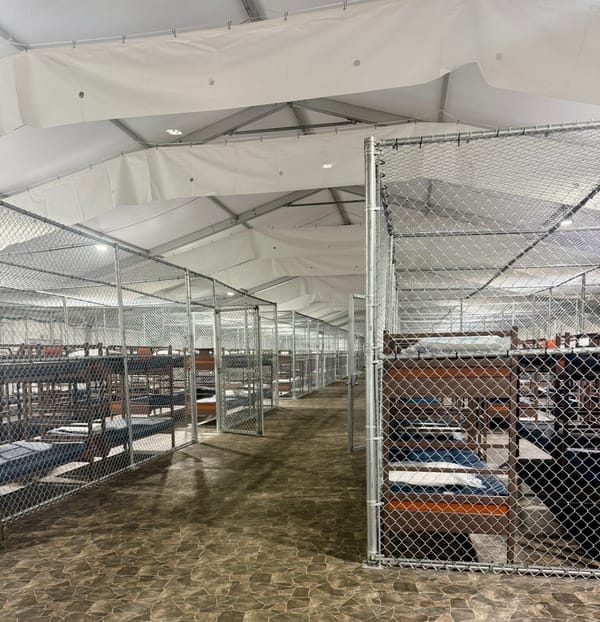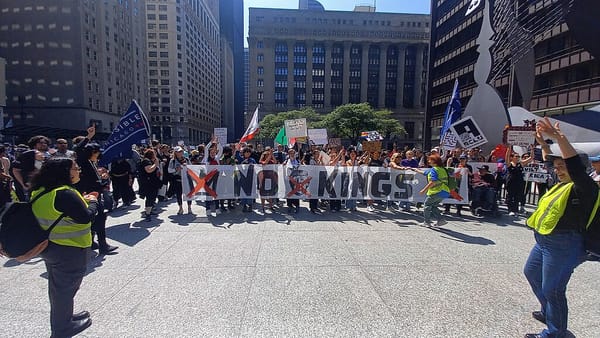The Number of Geopolitical “Poles” is Irrelevant Compared to their Disposition

The discourse about the structure of the world political order has come to turn increasingly around the question of ‘poles’ of geopolitical power—centers of influence and control, usually assumed to be particularly influential nation states, around which others orbit. Most recently, France’s president Emmanuel Macron declared, after discussions in Beijing, that he wanted to see Europe become a ‘third superpower’ with strategic autonomy from the United States. The BRICS group of countries—composed of Brazil, Russia, India, China, and South Africa—has been touted as another potential balance to US hegemony, and many have proposed that the different countries in the alliance could become poles of power within their own regions (the obvious problem arising along the contested border between India and China; rarely does good result when two potential regional hegemons rub shoulders like that). Advocates of a multipolar world order disagree on who the poles will be or what role they will play but most claim that the addition of strong powers in opposition to the US will restrict American latitude to act in ways that secure a more peaceful world. While the rise of alternate power centers is nearly inevitable, the changing polar structure of the world is not nearly as important to peace as the norms that prevail within it.
The question of what precisely constitutes a multi-polar world is disputed. For some, it is entirely practical: American international relations theorist John Mearsheimer wrote extensively about the concept in his foundational work The Tragedy of Great Power Politics. Mearsheimer downplays any cultural or civil elements to his great powers—they are defined by their steel production and population, the number of guns they can put in hands. By contrast, theorists like Samuel Huntington in the US or Aleksandr Dugin in Russia have argued instead that the world will ultimately be defined by civilizations of some sort or another: groups of nations that share in common their religious or philosophical viewpoint. Each of these has a distinct worldview that will flourish in a sphere of its own.
However, multipolar advocates have several commonalities. For one, they share a hope that a multipolar world will be less violent, that great powers will check one another’s power and that the problem of the last thirty years or so is US hegemony. There is a reasonable case to be made that the US War on Terror, and the horrible costs it created, was a result of the American lack of major rivals. This has left several countries in disarray and directly led to hundreds of thousands of deaths. Thus, claim the multipolar advocates, a world where there are multiple power centers will be more peaceful.
But there’s little evidence this is true. After all, during the period of bipolarity between the US and USSR, the US was if anything *more* bellicose, with wars in Korea and Vietnam easily matching the invasion of Iraq in terms of deaths and damage to infrastructure, and American allies like Suharto and Pinochet no more concerned with human rights than American allies today. And the existence of two major powers meant that internal conflicts like those in Angola or Guatemala were fueled for ever-longer periods of time, while regimes like that of Pol Pot were tolerated by both sides. Mearsheimer attempts to catalog the overall history of great power structures, but even limiting his work to Europe finds only limited periods of multipolar peace—1815-1853, and 1870-1914—and any student of history will note that these periods were *also* marked by cataclysmic violence by Europeans against non-Europeans.
Indeed, the creation of ‘spheres of influence’ based on cultural divides (ala Dugin or Huntington) or physical geography (following Mearsheimer) does not seem to create any great incentive for peace, first and foremost because it would require most of the people in those spheres accepting them. The reality, however, is that such ‘spheres’ have never been stable and universally accepted, even within them: there have scarcely been decades, much less centuries, of peaceful hegemony of Russia over Eastern Europe, or any state over the Middle East or India—to say nothing of where the borders of these regions collide. A multipolar world just means many slightly smaller potential aggressor states, with little reason to believe they will consistently check one another except on the borders of their influence.
The argument for multipolarity is also put in other terms—perhaps the goal is to allow for independent paths to economic development, or simply to break the hold the Washington Consensus of free trade and deregulation has on development funding. This, after all, was the initial goal of the BRICS development organization, and has led to the creation of a development bank for that purpose. There is reason here for both optimism and skepticism. Optimistically, a competition between financial systems in terms of investment into developing countries could increase the leverage of loan applicants, spurring even more development on terms that are easier on those countries. There is plenty of cause for skepticism, however. For one thing, the ’unipolar’ world (reasonably defined as starting in 1990 and continuing until today, or perhaps until a few years ago) experienced unprecedented levels of human development growth, with lower middle income earners worldwide seeing the greatest gains. One can certainly hope that this can be maintained or even accelerated in a world of multiple development lenders, currency regimes, and the like. The main complaints of the current system are the growth of income inequality within countries and the devastation of both local and global environments. These issues are no less pressing in countries like Russia, India, China, South Africa, and Brazil—indeed, in the latter two countries income inequality is more extreme than in any other major economy. An alternative development bank will have to consciously adopt a more egalitarian strategy—otherwise, it will simply replicate these same flaws.
And this is, ultimately, the danger of too much focus on the number of poles in the global system rather than their function. A multipolar order does not need to be consciously created—in effect it already exists and power is going to naturally continue to be more economically balanced as China, India, and then Africa grow in wealth. But what will determine whether the result is a more peaceful world and one with more tolerance for different development paths is not the existence of alternate power centers but the norms that govern their interactions. This is after all the liberal position from the start—that institutions, mutual trade relations, and the spread of democracy will be the ingredients for a more peaceful world. That norms of international behavior suffered during the period of US hegemony, especially with the invasion of Iraq, is undeniable. The fundamental tenet of the Westphalian system, that states not invade or overthrow one another, was egregiously violated—and this opened the door for future conflicts. At the same time, the present moment is one of unique potential for re-establishing those norms.
Brazilian president Lula da Silva has become the first of the BRICS leaders to move explicitly in this direction. In addition to his country’s vote to condemn Russia’s invasion at the UN, da Silva has declared that Russia cannot remain in Ukraine. If China and India followed the same philosophy, it is unlikely Russia could continue its war, and plausible that it could have been avoided entirely. But the fault lies not in the creation of alternative geopolitical poles or in their absence, but rather in the lack of consistency in applying international law.
Rebuilding that norm will be a long process. Russia must pay a steep price, and be denied a substantial reward, for their rule breaking—but the US must also continue to curb its own sense of impunity when it comes to international sovereignty. Combined with an international effort to deter future aggression, these steps can create an environment in which a multipolar world can be a peaceful one; in their absence, no geopolitical structure can succeed in that task.
Featured image is Viet Cong prisoners await being carried by helicopter to rear area




